Sponsored Content
IMF International Monetary Fund
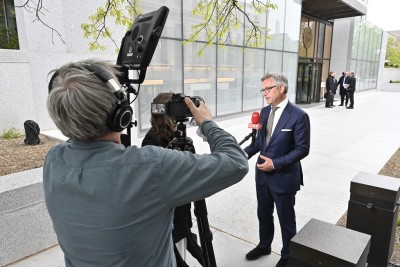
Austria and IMF Extend Agreement on Joint Vienna Institute
The Joint Vienna Institute, a cooperation between the IMF and the Austrian government, is to be extended. The program, which is designed to help foreign countries become market economies, has been in existence for 30 years.
April 25, 2022

Joint Vienna Institute: Patrick Imam Succeeds Holger Flörkemeier
Patrick Imam joined the JVI - Joint Vienna Institute as Deputy Director. Having joined the International Monetary Fund (a party to the Agreement for the Establishment of the JVI) in 2005, he has held positions in the Middle East and Central Asia as well as the African Department (Zimbabwe and Madagascar), the IMF Institute and the Monetary and Capital Markets division. His predecessor Holger Flörkemeier was the JVI Deputy Director for the last four years. On the occasion of his departure, the JVI interviewed him and asked him to share his experience and views on the JVI.
September 28, 2021
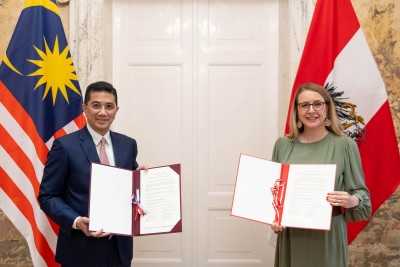
Economic Opportunity: Malaysian-Austrian Joint Statement on Cooperation
Malaysian Minister of International Trade and Industry Mohamed Azmin Ali met with the Austrian Minister of the Economy Margarete Schramböck. The pair discussed cooperation in the high-tech industry, education and more. The two ministers also signed a joint statement, affirming Malaysia and Austria's intention of further economic cooperation.
August 3, 2021
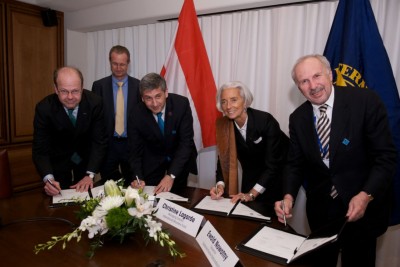
What Is the Joint Vienna Institute and What Does It Do?
The Joint Vienna Institute (JVI) is a Vienna based International Organization which provides policy-oriented training primarily to public sector officials from countries in Central, Eastern and Southeastern Europe, the Caucasus and Central Asia, and other selected countries. It has been a hallmark of cooperation between the IMF and Austria for 29 years. Find out how the institute justifies its existence.
July 22, 2021
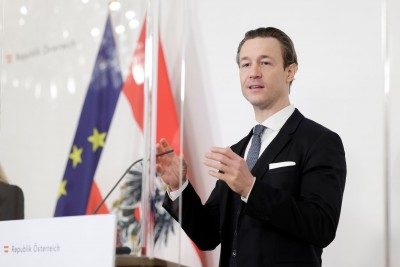
Covid-19: Austria Ranks Second for Aid Measures in EU
According to recent calculations published by the International Monetary Fund (IMF), Austria ranks second for Covid-19 aid measures among all EU Member States. Only Greece has spent a higher portion of its GDP (13.7%) for aid instruments, while Austria invested 11.7 percent to relieve its businesses and people.
April 12, 2021

International Financial Institutions World Bank Group and IMF Expand Presence in Austria
Important success for Austria's business location policy. According to media reports, the IMF International Monetary Fund will move to Vienna in June, while the World Bank Group will double the staff and size of its Vienna office.
March 29, 2019
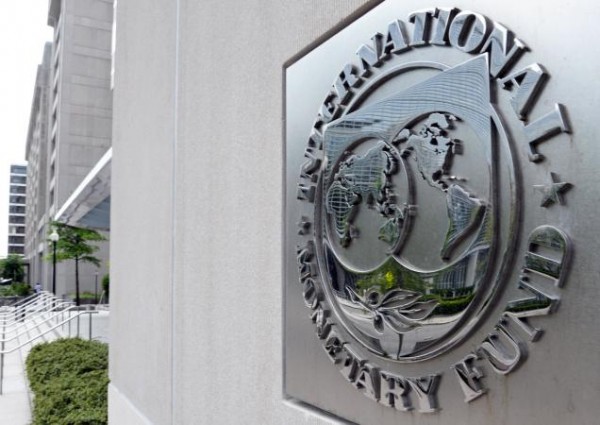
IMF Report: Austria Should Make Cuts in Healthcare, Education, Pensions, Banks Should Raise Equity
Austria's outlook suggests a moderate improvement. The latest IMF report recommends Austria to conduct broad cuts in such areas of spending as healthcare, education and pensions. Also, Austrian banks should raise equity. Unemployment, although rising, has remained moderate at below 6 percent. Strengthening private consumption, investment, and exports are expected to raise growth to about 1½ percent in 2016. The current account surplus exceeds 2 percent of GDP thanks to sustained price competitiveness and robust tourism inflows. The authorities have made significant progress in revamping the regulatory framework for the banking sector. However challenges remain and further measures need to be taken. Therefore the IMF suggests three policy priorities: expenditure reforms, integrate immigrants into the Austrian economy and further strengthen financial sector resilience.
December 14, 2015

Austria to Support China's "Asian Infrastructure Investment Bank"?
The Austrian Finance Ministry confirmed that Austria will participate in the China-proposed Asian Infrastructure Investment Bank (AIIB) project after receiving the appropriate approval from the government. Now it checks for a potential engagement. China is taking matters into its own hands. It will use the new bank to expand its influence at the expense of America and Japan. Its decision to fund a new multilateral bank reflects its frustration with the slow pace of global economic governance reform. China is the biggest economy in Asia, but the Asian Development Bank (ADB) is still dominated by the Japanese: Japan’s voting share is twice China’s and the ADB’s president has always been Japanese. Also, reforms to give China more say at the International Monetary Fund (IMF) have been delayed for years.
March 27, 2015

Background: The New "Asian Infrastructure Investment Bank"
The Asian Infrastructure Investment Bank (AIIB) is regarded by some as a rival for the IMF, the World Bank and the Asian Development Bank (ADB), which are regarded as dominated by developed countries like the United States. AIIB is an international financial institution proposed by the government of China. The purpose of the multilateral development bank is to provide finance to infrastructure projects in the Asia region. Austria recently said, that it is "positive" and that it "now checks for a potential engagement".
March 27, 2015

Slovenia: Head of NLB Throws in Towel
On Friday France Ahar, President of the supervisory board of the biggest lender of Slovenia, state-controlled NLB, handed in his resignation.
April 14, 2014
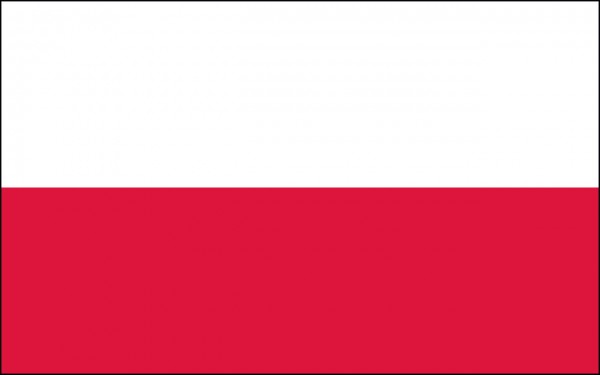
Poland: Growth Forecast Raised Again
The International Monetary Fund has raised the forcast of GDP growth in Poland.
April 9, 2014
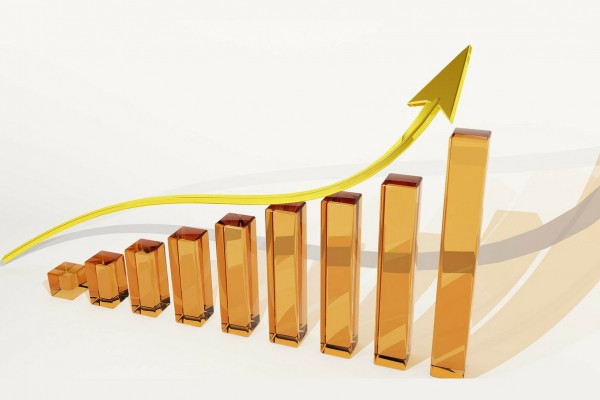
IMF Upgrades Growth for Slovenia
In its latest report the International Monetary Fund has raised its projection for GDP growth in Slovenia.
April 9, 2014
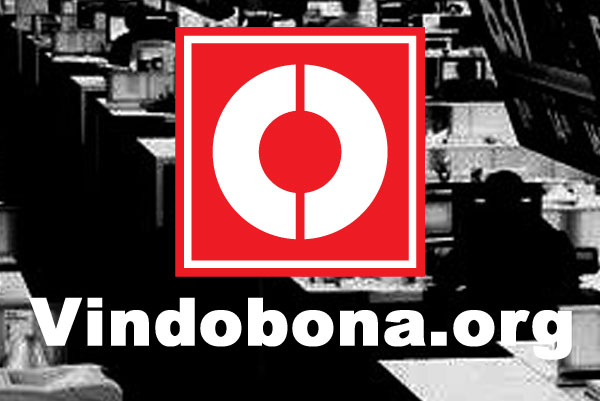
Sikorski: Ukraine Close to Deal with IMF
Poland´s Minister of Foreign Affairs Radoslaw Sikorski explained that the talks between the IMF and Ukraine have made substantial progress.
March 29, 2014

Serbia to Continue Talks with IMF
Serbia's Minister of Finance Lazar Krstic announced that an International Monetary Fund (IMF) mission will visit Serbia for talks on a new three-year arrangement shortly after a new government is formed.
March 21, 2014

Fitch: Elections Command Fiscal Consolidation and Reforms
Vucic appears to acknowledge the need for reforms in Serbia.
March 20, 2014
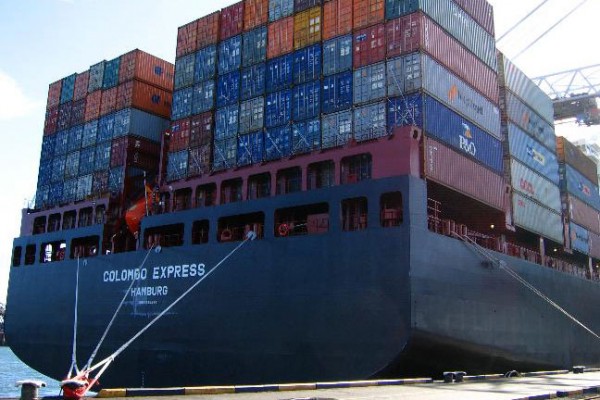
Serbia: Economic Activity Increases Speed
Since the beginning of 2014 economic activity has started to accelerate.
March 19, 2014

Serbia to Continue Path towards EU
Even after the elections the new government intends to continue the path towards an EU membership.
March 13, 2014

Poland Reconsiders Joining Eurozone
The current political crisis in Ukraine is also causing turmoil at the Polish financial markets letting the national currency drop significantly against the Euro.
March 5, 2014

Romania: Ponta Clinging to Leadership
Reforms in Romania will be carried out even if Ponta’s new government’s majority will be reduced in parliament.
February 27, 2014

Serbia to Start Talks with IMF
Officials of the International Monetary Fund (IMF) have started negotiations with Serbia on Wednesday.
February 26, 2014

Serbia: Structural Reforms to Boost FDI
Recent projections of the National Bank of Serbia (NBS) forecast foreign direct investments (FDI) to increase to € 1bn this year up from € 750m.
February 21, 2014

Serbia: FDI for Sustainable Growth
Serbia needs FDI in the amount of € 2bn at least to stimulate sustainable growth, according to experts.
February 12, 2014

Serbia: Inflation Requires New IMF Agreement
In the light of a devaluation of the Dinar Serbia needs a new agreement with the IMF to improve funding and accelerate the realization of reforms.
February 10, 2014

Slovenia Under Pressure Again
The International Monetary Fund calls Slovenia to cut public spending radically. The Slovenian government still refrains from unpopular decisions.
February 7, 2014

Romania Reaches Agreement With IMF
Romania has met the criteria to receive a stand-by agreement by the International Monetary Fund.
February 5, 2014

Criticism of Croatia´s Fiscal Policy
Next year, Croatia´s government wants to comply with the EU fiscal rules. According to economists, this aim is not realistic.
February 4, 2014

IMF: Bulgaria May Reach European Standards in 40 Years
According to the International Monetary Fund, the poorest EU member faces a long transition period.
February 4, 2014

Bulgaria: IMF Puts Pressure on Government
The International Monetary Fund demands Bulgaria´s government to accelerate economic reforms.
February 3, 2014
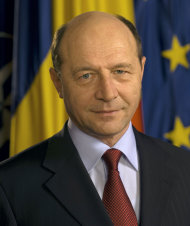
Romania´s President Opposes the IMF
Traian Basescu is strictly against imposing an additional tax on fuel. Whether Romania will achieve the budget target is highly uncertain.
January 24, 2014

Eurozone: Highest Economic Growth in Two Years
The purchase manager index for the private economy increased to 53.2 points up by 1.1 points, as published by Markit research institute on Thursday.
January 23, 2014

Poland: Banking Sentiment Rises
The Polish banking sentiment indicator Pengab increased by 1.2 points in January on a month-on-month comparison basis to a total of 27.5 points.
January 23, 2014

„Only A Catastrophy Will Bring a Change“
Bestselling author Marc Friedrich criticizes the IMF sharply and thinks that the Basel III framework is “ridiculous”. The U.S. monetary policy is “doomed to failure”.
January 21, 2014

Poland Added in IMF´s Watch List
According to the International Monetary Fund, Poland is one out of four new countries which are systemically important in terms of crisis management.
January 16, 2014

IMF and EBRD Deeply Concerned Over CESEE
Foreign banks continue to withdraw capital from the region. According to the International Monetary Fund, the development is highly considerable.
January 14, 2014

CESEE: Lack in FDI Causes Modest Economic Growth
The International Monetary Fund (IMF) is cautiously optimistic about economic growth in CESEE.
January 14, 2014

Romania: Slight Increase in FX Reserves
In December 2013 FX reserves increased slightly compared to the previous month.
January 7, 2014

European Savers in Danger
Already this year, savers in the Eurozone may fear a compulsory tax on deposits, the Danish Saxo Bank says.
January 4, 2014

Bulgaria: Economic Upturn Not Sooner Than 2015
As reported by Bulgarian daily Standart, an economist at World Bank pointed out that the country has not yet reached the economic situation of before the start of the financial crisis in 2008.
December 20, 2013

Bulgaria: Majority of Citizens Call for Early Elections
According to a poll, 80 percent of Bulgarians demand early elections.
December 17, 2013

Bulgaria: Prime Minister Stresses Positive Development
Plamen Oresharski stressed that Bulgaria has performed better than expected in 2013.
December 10, 2013
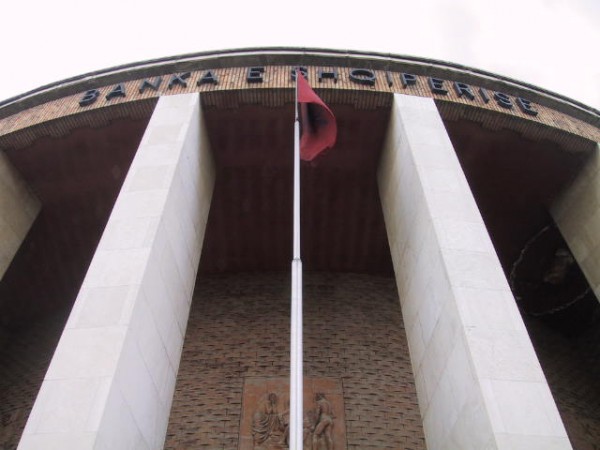
Bank of Albania Presses for Agreement with IMF
The Albanian economy from short-term adjustment toward long-term sustainable growth. Why Albania needs an agreement with the IMF.
December 4, 2013

Poland: GDP Growth Speeds up
The long-awaited economic recovery starts to accelerate in Poland.
December 2, 2013

Croatia: HNB Pushes Credits
According to reports by Reuters, the Croatian National Bank (HNB) intends to issue HRK 4bn (US-$ 707m) to support credits. Further details will be published by the Central Bank later this week.
November 27, 2013

Poland: IMF Corrects Growth Forecast Upward
Growth forecasts for next year were increased by 0.3 percent by IMF.
November 25, 2013

Slovenia: Stress Tests Result Published on December 13
Bostjan Jazbec, governor of the Slovenian National Bank (SNB), is optimistic that no Slovenian bank will have to be liquidated.
November 23, 2013

Austria: Wifo’s Estimates More Optimistic
Wifo forecasts Austria to keep its growth advantage if “smart” consolidation measures are carried out by the government.
November 20, 2013
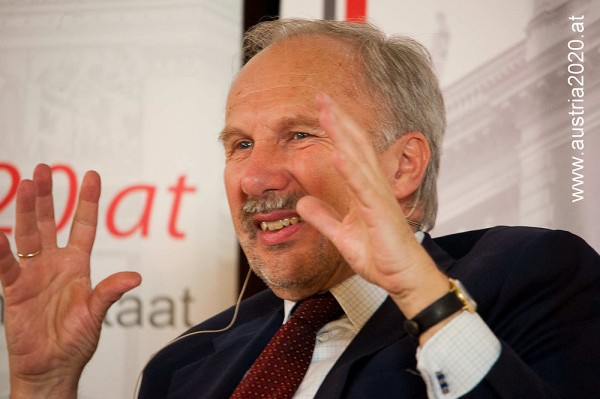
Nowotny: Economic Recovery not as Strong as Expected
According to Ewald Nowotny, governor of the Austrian National Bank (OeNB), indicators point toward a slow recovery in the next quarters.
November 18, 2013

Bulgaria: Fiscal Plans “Too Ambitious”
According to the IMF, the underlying assumptions of Bulgaria´s government are not realistic. The banking industry is stable, though.
November 16, 2013

Linic: No Aid from IMF Needed
According to Croatia´s Minister of Finance Slavko Linic, the country will manage the financial crisis on its own.
November 15, 2013


